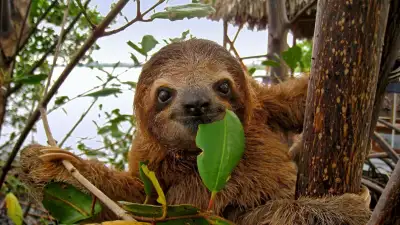
Communicating in Jaco: What Languages are Spoken?
In the vibrant coastal town of Jaco, Costa Rica, nestled between lush rainforests and pristine beaches, a colorful tapestry of languages weaves through the bustling streets and lively markets. As a popular destination for tourists and expatriates alike, Jaco serves as a melting pot of cultures, each contributing its unique linguistic flavor to the community. From the rhythmic cadence of Spanish to the melodic tones of English and beyond, understanding the diverse linguistic landscape of Jaco is essential for both visitors and residents alike. In this article, we delve into the fascinating array of languages spoken in Jaco, offering insights into the cultural richness and communication dynamics of this enchanting coastal paradise.
Spanish
Spanish, the native language of Jaco and the predominant tongue of Costa Rica, carries with it a rich history deeply intertwined with the country's cultural identity. With roots tracing back to the Spanish colonization of the Americas in the 16th century, Spanish became firmly entrenched in the region, supplanting indigenous languages and shaping the linguistic landscape of present-day Costa Rica. Over the centuries, the Spanish language spoken evolved alongside indigenous influences, resulting in a distinct Costa Rican dialect characterized by its clear pronunciation, diminutive suffixes, and unique idiomatic expressions. In Jaco, Spanish serves as the primary mode of communication.
English
English, although not the official language of Costa Rica, holds a significant presence in Jaco and throughout the country, making it the second most spoken language in the region. The roots of English in Costa Rica can be traced back to various historical influences, including British traders, American expatriates, and English-speaking immigrants who settled in the area. During the 19th century, British companies played a prominent role in Costa Rica's economy, particularly in industries such as coffee and banana exports, contributing to the spread of English among local communities. Additionally, the influx of American expatriates seeking adventure and retirement in Costa Rica has further bolstered the prevalence of English, particularly in popular tourist destinations like Jaco.
Today, English proficiency is highly valued in Jaco, as it facilitates communication with tourists from English-speaking countries and enhances opportunities in the tourism and hospitality sectors. Many businesses in Jaco cater to English-speaking clientele, with signage, menus, and services offered in both Spanish and English. The presence of English-speaking residents and expatriates has also led to the integration of English into everyday life, from informal conversations to cultural exchanges and community events. As a result, English has become an essential part of the linguistic landscape of Jaco, reflecting the region's dynamic history and its enduring connections to the global community.
French, German, Italian, Chinese!
While Spanish and English dominate the linguistic landscape of Jaco, the influence of several other cultures and languages can be felt, including French, German, Italian, Chinese, Russian and many others. The presence of these languages can be attributed to many factors, including the influx of expatriates and tourists seeking to experience the natural beauty and laid-back lifestyle of the region.
Many countries have maintained diplomatic relations with Costa Rica over the years, leading to cultural exchanges and interactions that often manifest in some unexpected ways. One example of a multicultural influence that can be felt in Costa Rica includes a well-loved culinary contribution: ensalada Rusa, or Russian salad.
The first iteration of this dish was thought to be created by a Belgian chef of French origin named Lucian Olivier, who immigrated to Russia where he opened an incredibly popular restaurant that served a unique potato salad with a mayonnaise base to the upper echelons of Russian society prior to WWI. While the original recipe is said to be lost to time, Russians who immigrated to Costa Rica and other Latin countries during the formation of the Soviet Union brought homespun versions of this well-loved salad with them. Over time, the salad’s ingredients shifted to those that were locally available, including the addition of boiled, diced, red beets. Today, the ensalada Rusa you find in Jaco Costa Rica is typically bright pink and served cold. It’s hard to find a more refreshing or well-loved dish in town.
Indigenous Languages
Though not often heard in Jaco, it’s important to mention that Costa Rica is home to several indigenous languages, each with its own unique history and cultural significance. Each of these languages plays a crucial role in preserving the cultural heritage of the indigenous communities in the country.
One of the most prominent indigenous languages in Costa Rica is Bribri, spoken by the Bribri people primarily in the southern region of the country, particularly in the Talamanca region near the border with Panama. Another significant indigenous language is Cabécar, spoken by the Cabécar people who also inhabit the Talamanca region. In addition, there are several other indigenous languages spoken in Costa Rica, including Maleku, spoken by the Maleku people in the northern part of the country, and Ngäbere, spoken by the Ngäbe people in the southern Pacific region.
While these many other languages are not heard as often as Spanish or English, the occasional presence of a different language or cultural influence in Jaco reflects the cosmopolitan nature of the town. This linguistic diversity adds a unique flavor to the community, creating opportunities for cultural exchange and enriching the overall experience for residents and visitors. As Jaco continues to evolve as a global destination, the subtle influence of many of the world’s incredible languages will undoubtedly contribute to the dynamic and multicultural atmosphere that defines this coastal paradise.
 Browse All
Browse All
